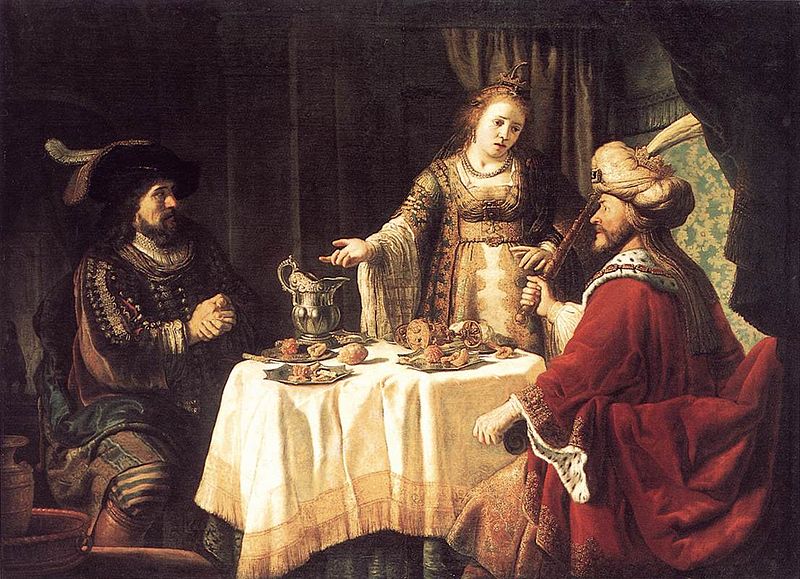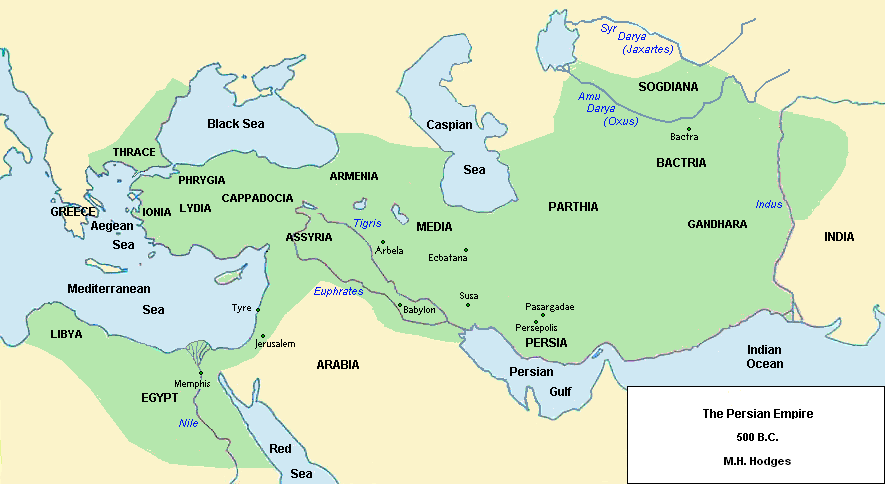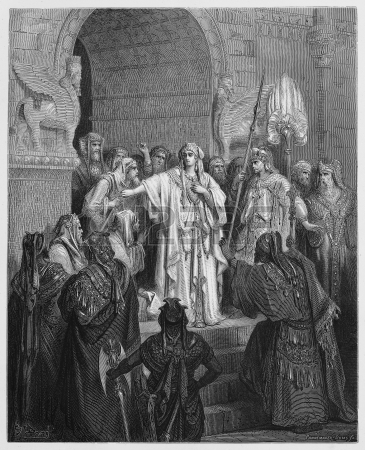God is not named even once in the book of Esther. And yet this story is really all about God and His sovereignty. This story relates how God took care of His people even in captivity. The Israelites were in captivity in Babylon because of their sin and rebellion in worshipping other gods while in the Promised Land. God punished them by allowing the Babylonians to carry them off out of the Promised Land and into captivity. But God did not forget them any more than He forgot His people when they were in captivity in Egypt 700 years before this.
God used Moses to lead His people out of the Egyptian captivity and into the Promised Land. He warned them that if they continued to sin against Him by worshipping other gods, they would be punished. He punished them by sending enemies to defeat them and carry them off into captivity.
God still loved His people and would preserve them in the land of Babylon. He would save them through the faithfulness of a woman this time – Esther. Later God would lead a remnant of the people back to the Promised Land during the time of Ezra and Nehemiah.
“Then let the young lady who pleases the king be queen in place of Vashti.” And the matter pleased the king, and he did accordingly. … A Jew named Mordecai… was bringing up Hadassah, that is Esther, his uncle’s daughter, for she had no father or mother. Now the young lady was beautiful of form and face, and when her father and her mother died, Mordecai took her as his own daughter. (Esther 2:4-7)
So Esther was taken to King Ahasuerus to his royal palace in the tenth month which is the month Tebeth, in the seventh year of his reign. The king loved Esther more than all the women, and she found favor and kindness with him more than all the virgins, so that he set the royal crown on her head and made her queen instead of Vashti. (Esther 2:16,17)
In last week’s story, King Ahasuerus had deposed his beautiful and virtuous queen Vashti. Eventually his anger over being rebuffed by this gracious woman subsided and he sought to get himself another wife. His advisors came up with a great idea, one sure to please this selfish, lecherous king. Let the king choose from among all of the beautiful virgins in the land by selecting the one that pleased him the most in the royal bed. King or not, this sin is horrible in the extreme. We must not underestimate the wickedness of the king’s actions.
 And so, King Ahasuerus chose Esther to be his queen. He apparently loved her very much. Perhaps Esther’s inner qualities of beauty stood out from among the rest of the women. She was certainly an obedient child in Mordecai’s care. Esther followed Mordecai’s command to keep her kindred a secret. If the king had known she was a Jew, he would not have been pleased.
And so, King Ahasuerus chose Esther to be his queen. He apparently loved her very much. Perhaps Esther’s inner qualities of beauty stood out from among the rest of the women. She was certainly an obedient child in Mordecai’s care. Esther followed Mordecai’s command to keep her kindred a secret. If the king had known she was a Jew, he would not have been pleased.
Esther proved not only her faithfulness, but also her courage while she was queen. Soon after Esther became queen, Mordecai uncovered a plot to assassinate the king. He told Esther about it and she in turn told King Ahasuerus about the conspiracy. The incident was recorded in the king’s chronicles. At this time nothing was done to reward Mordecai.
During this time, the king’s highest official in the land was a wicked man named Haman. He hated the Jews and especially Mordecai. Mordecai refused to bow down when Haman passed by and this infuriated Haman.
To get revenge, Haman came up with a plan to exterminate all of the Jews throughout every place in the Babylonian kingdom. King Ahasuerus went along with Haman’s plot and the two of them set a specific date for the genocide.
Letters were sent throughout all of the land so the people would be ready to kill all of the Jews on the specified date. Mordecai learned about the plans and went to Esther immediately.
Esther was alarmed but she was not sure what she could do to help. If she tried to talk to King Ahasuerus without his permission, she could be killed.
Mordecai challenged her with these words –
Do not imagine that you in the king’s palace can escape any more than all the Jews. For if you remain silent at this time, relief and deliverance will arise for the Jews from another place and you and your father’s house will perish. And who knows whether you have not attained royalty for such a time as this? (Esther 4:13,14)
Esther told Mordecai to have the Israelites fast and pray for three days and she and her maids would do the same. She dared not approach the all-powerful king without the Lord’s protection. Here we see the hand of God in the background even though He is not mentioned by name. Esther and Mordecai had the faith to believe that God would preserve His people.
would do the same. She dared not approach the all-powerful king without the Lord’s protection. Here we see the hand of God in the background even though He is not mentioned by name. Esther and Mordecai had the faith to believe that God would preserve His people.
Taking her life into her hands, Esther approached the king. She had come up with a carefully devised plan that would save the king’s face while undoing the wicked Haman’s plot. She had several banquets designed to please the king. Haman was the only one invited. Haman was feeling mighty important and he even had a gallows constructed on which to hang his enemy Mordecai.
In the meantime, God intervened. One night the king couldn’t sleep and had his chronicles read to him. He found out about the plot to assassinate him and that somebody named Mordecai had saved his life. He asked his officials, “What had been done for Mordecai?”
“Nothing has been done for him,” they replied.
The king decided to honor Mordecai and asked Haman, “What is to be done for the man whom the king desires to honor?” Naturally Haman thought the king meant him and so he advised the king to honor the man who saved the king greatly. How mortified Haman was when it was Mordecai who was honored!
 At the second banquet the king asked Esther what he could do for her. She admitted that her people were the Jews and that there was a plot to have them annihilated. The king (who apparently did not remember that he was involved with Haman) was outraged and asked Esther what should be done. She asked that the tables be turned on the perpetrators. She denounced Haman as the enemy. Haman was hanged on the gallows he had built for Mordecai and all of Haman’s possessions and titles were given to Mordecai.
At the second banquet the king asked Esther what he could do for her. She admitted that her people were the Jews and that there was a plot to have them annihilated. The king (who apparently did not remember that he was involved with Haman) was outraged and asked Esther what should be done. She asked that the tables be turned on the perpetrators. She denounced Haman as the enemy. Haman was hanged on the gallows he had built for Mordecai and all of Haman’s possessions and titles were given to Mordecai.
The king decreed that the Jews were allowed to defend themselves. They would be allowed to destroy any army that tried to fight them and the Jews would be allowed to take the plunder for themselves.
The Jews rid themselves of all of their enemies and rejoiced in their deliverance. They instituted the festival of Purim. It is still celebrated to this day.
God had made Esther queen in order to meet the challenge that Haman constructed. Esther showed wisdom, patience, and much courage to do her part. She relied on God for His help. When we find ourselves in strenuous circumstances we should remember that God might have reasons for the difficulties we face. We can follow Esther’s example of seeking God’s face with fasting and praying and then totally trusting Him to lead us to do His will.



